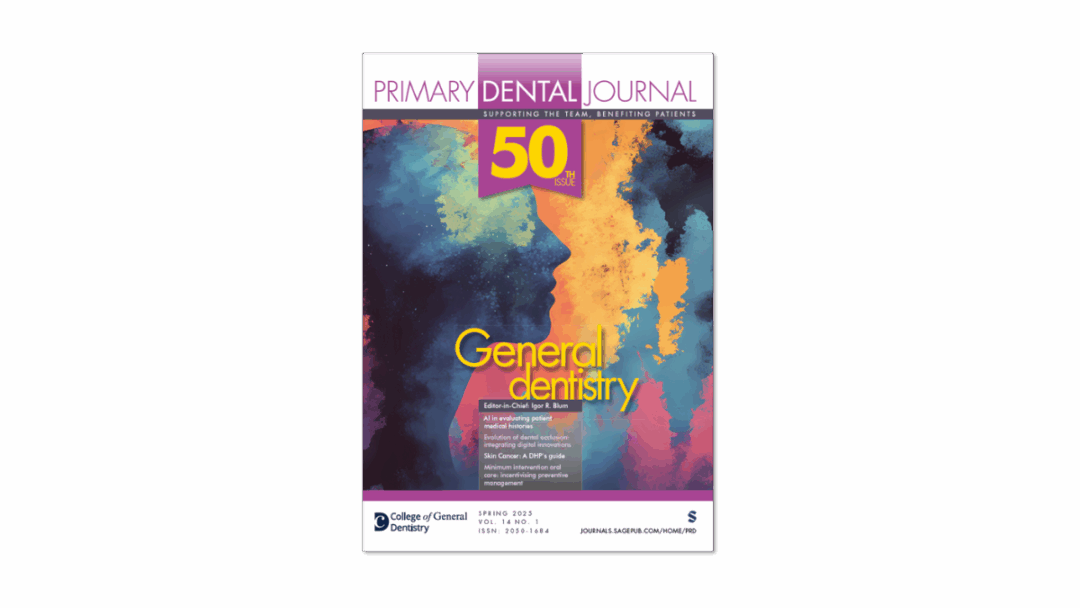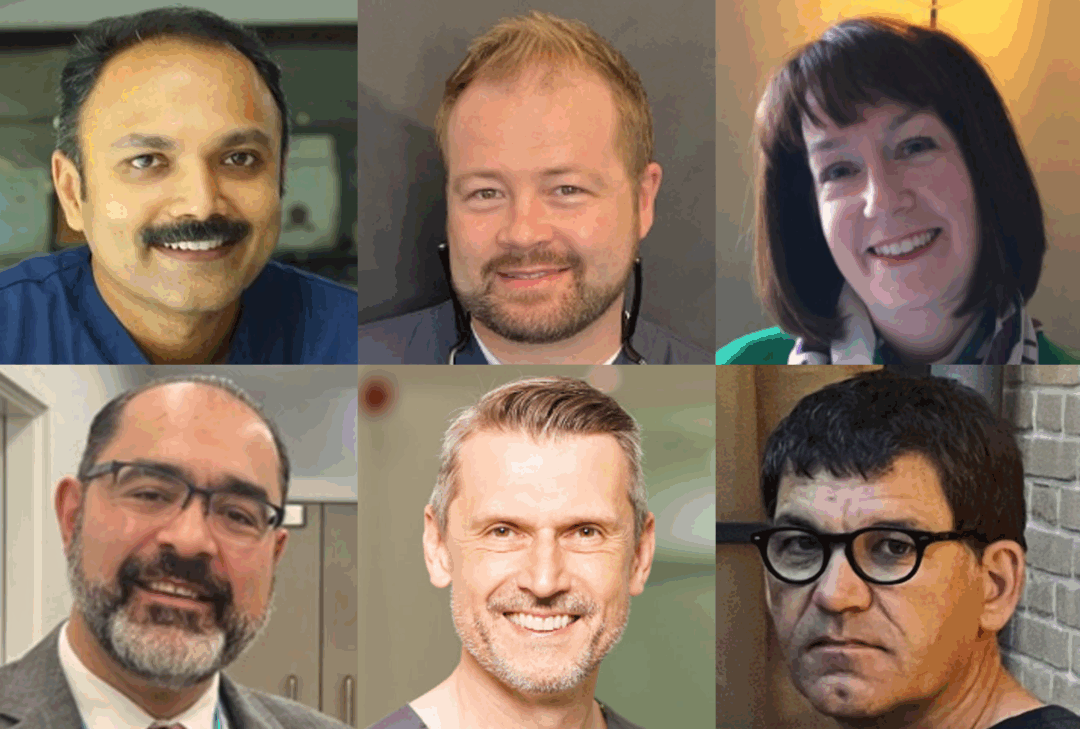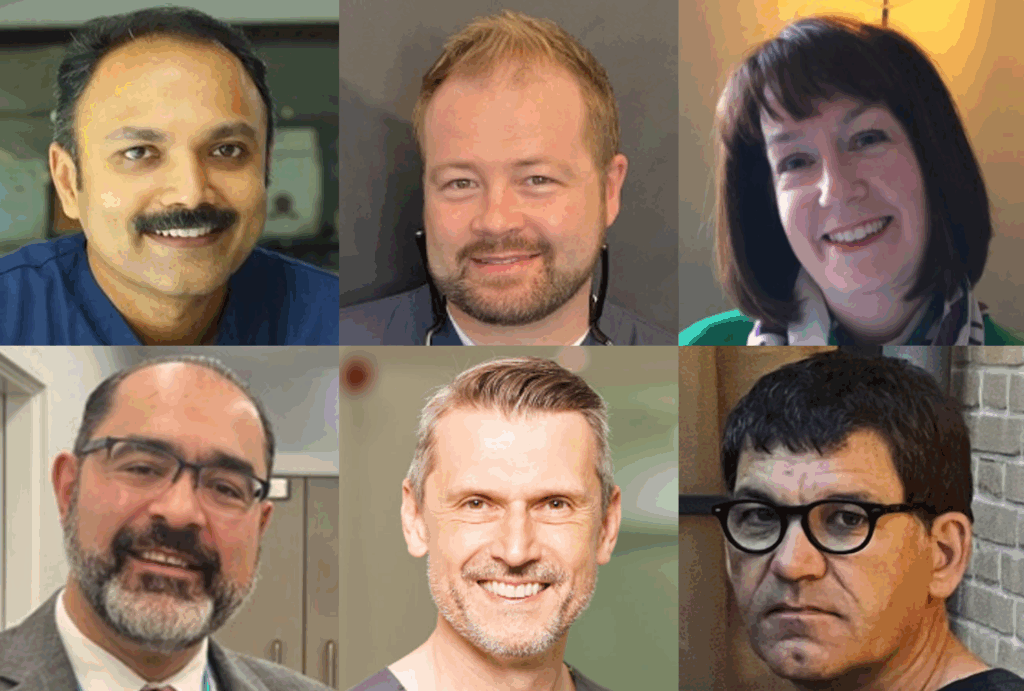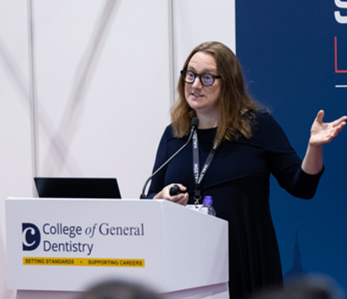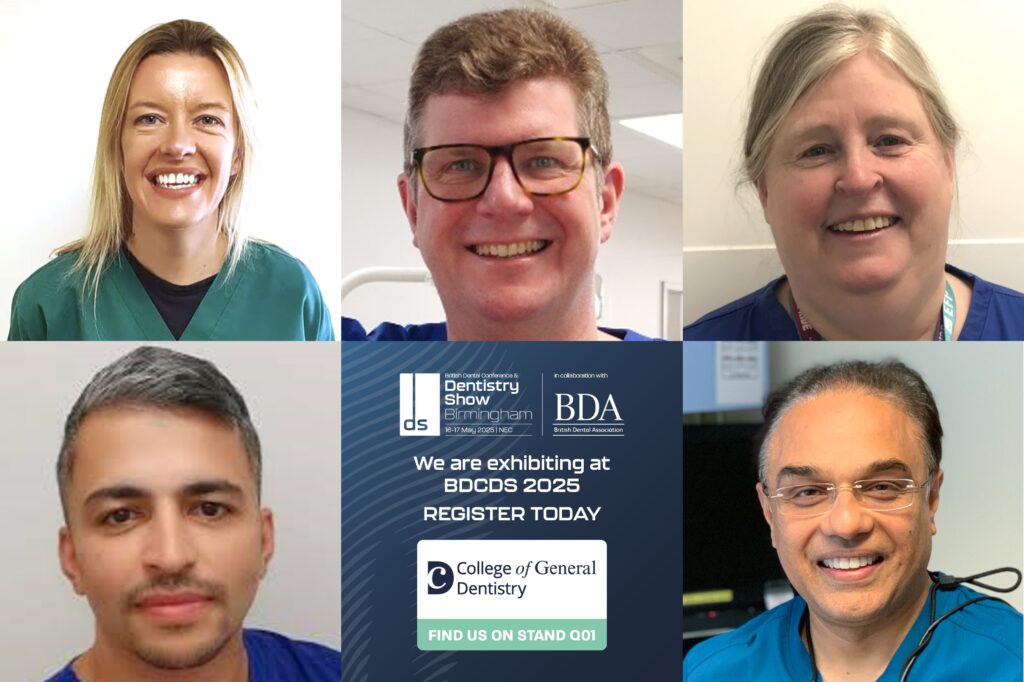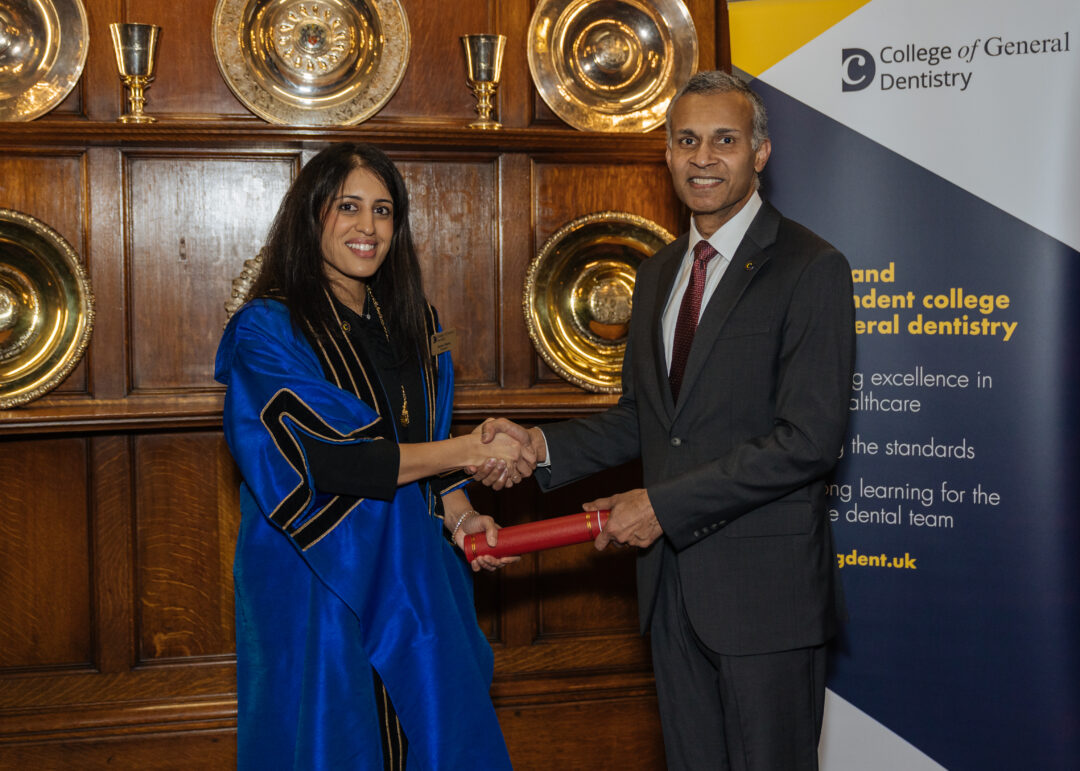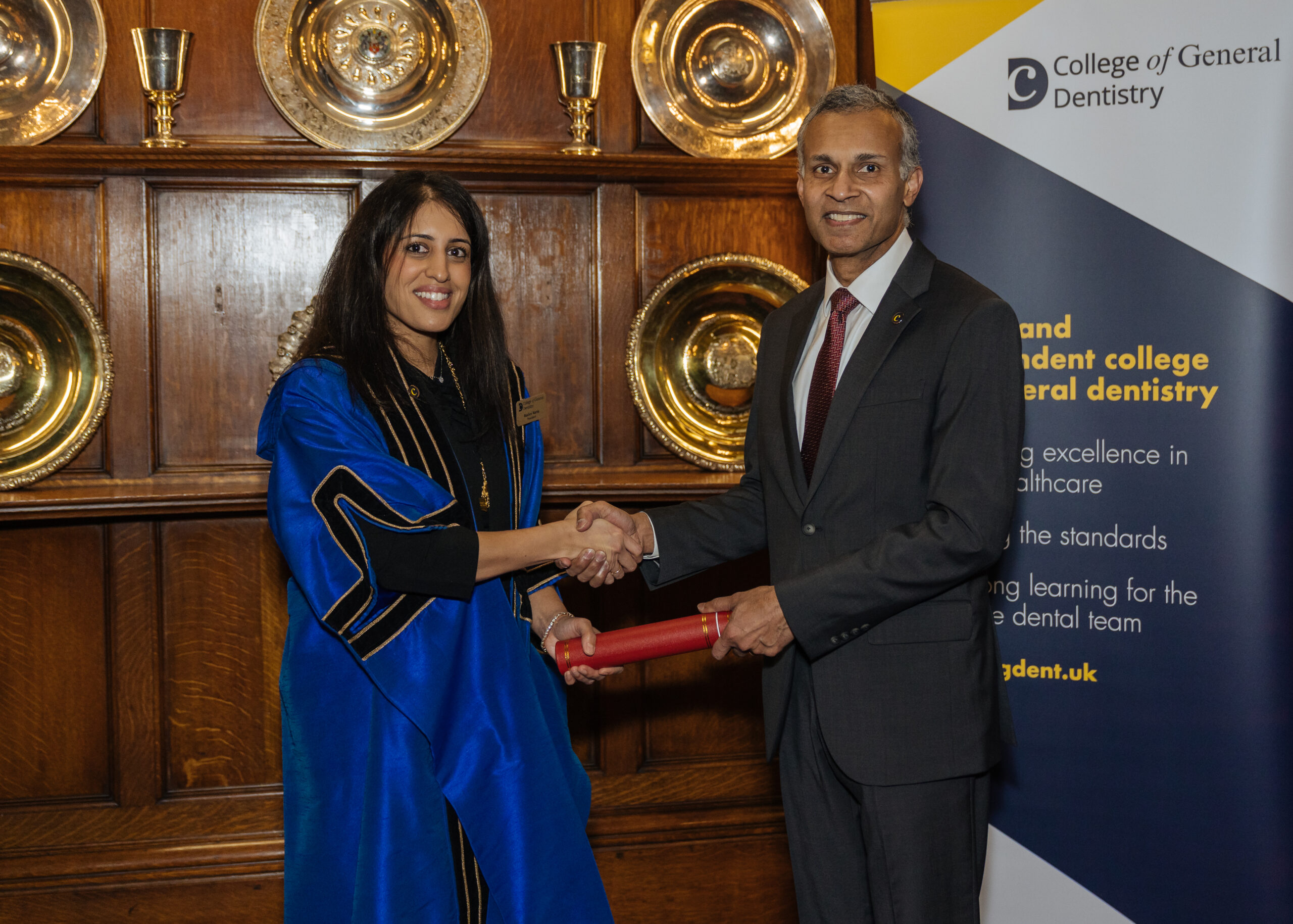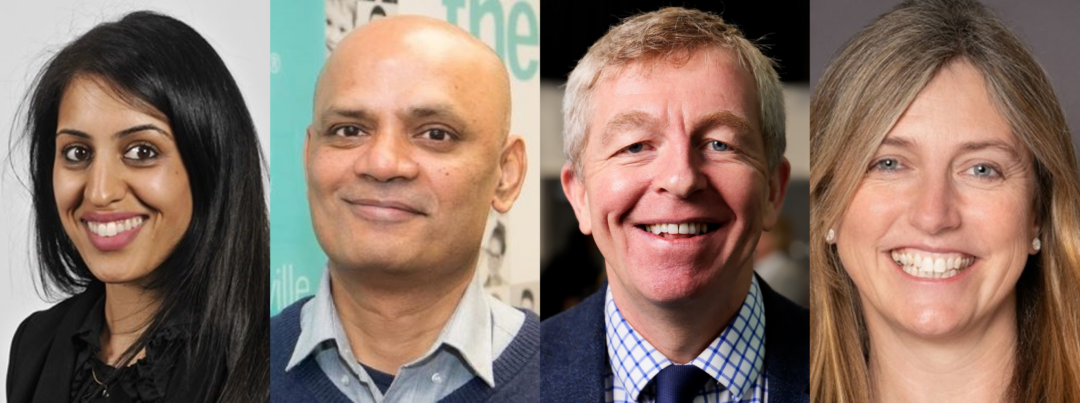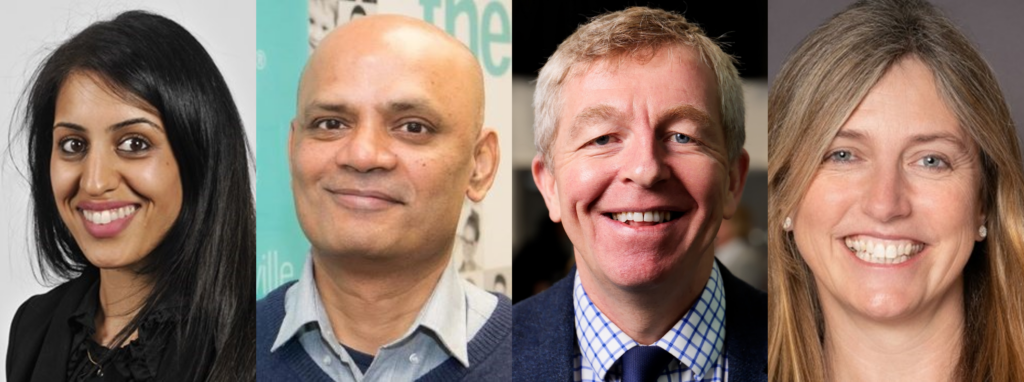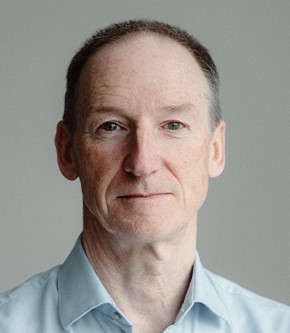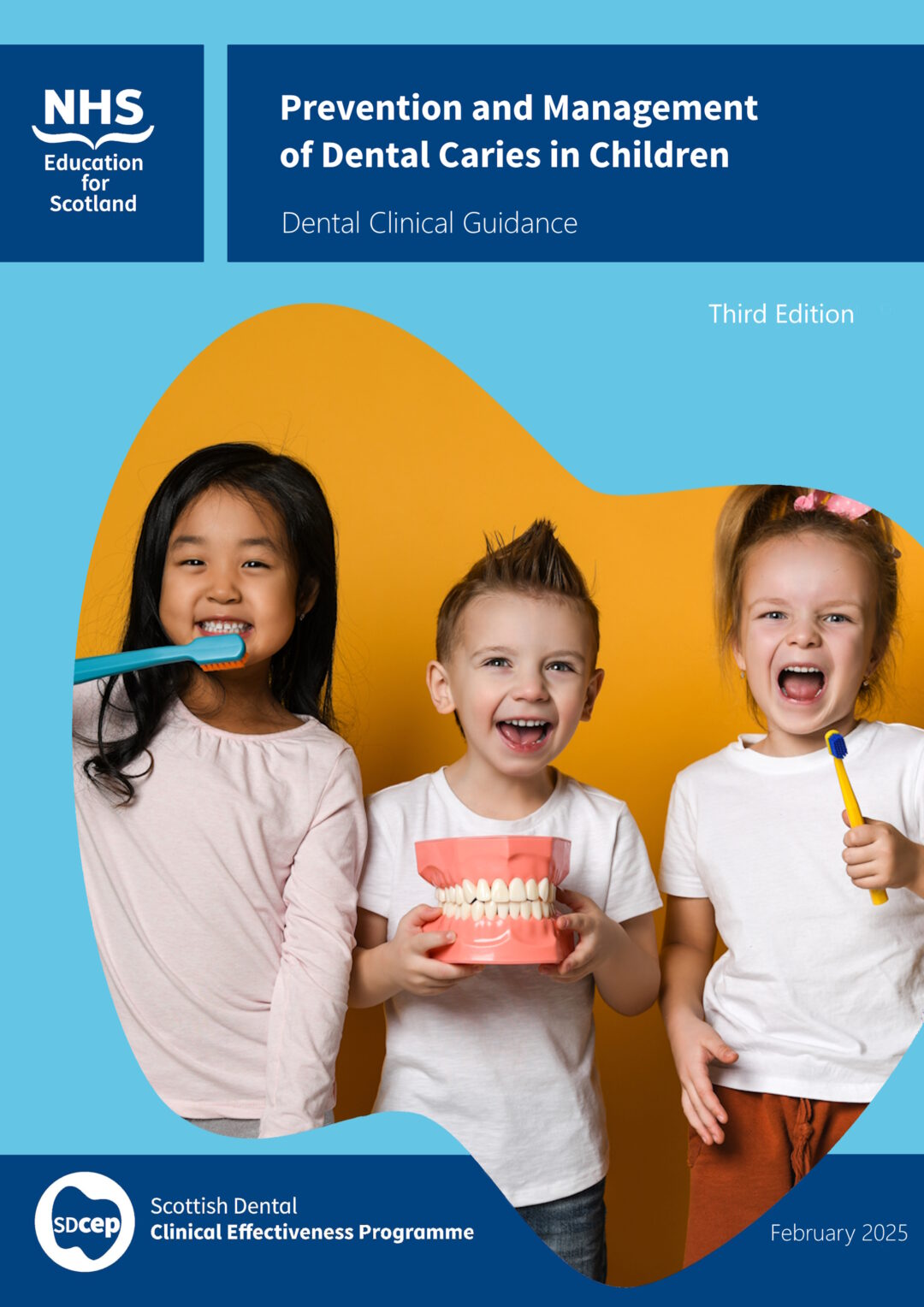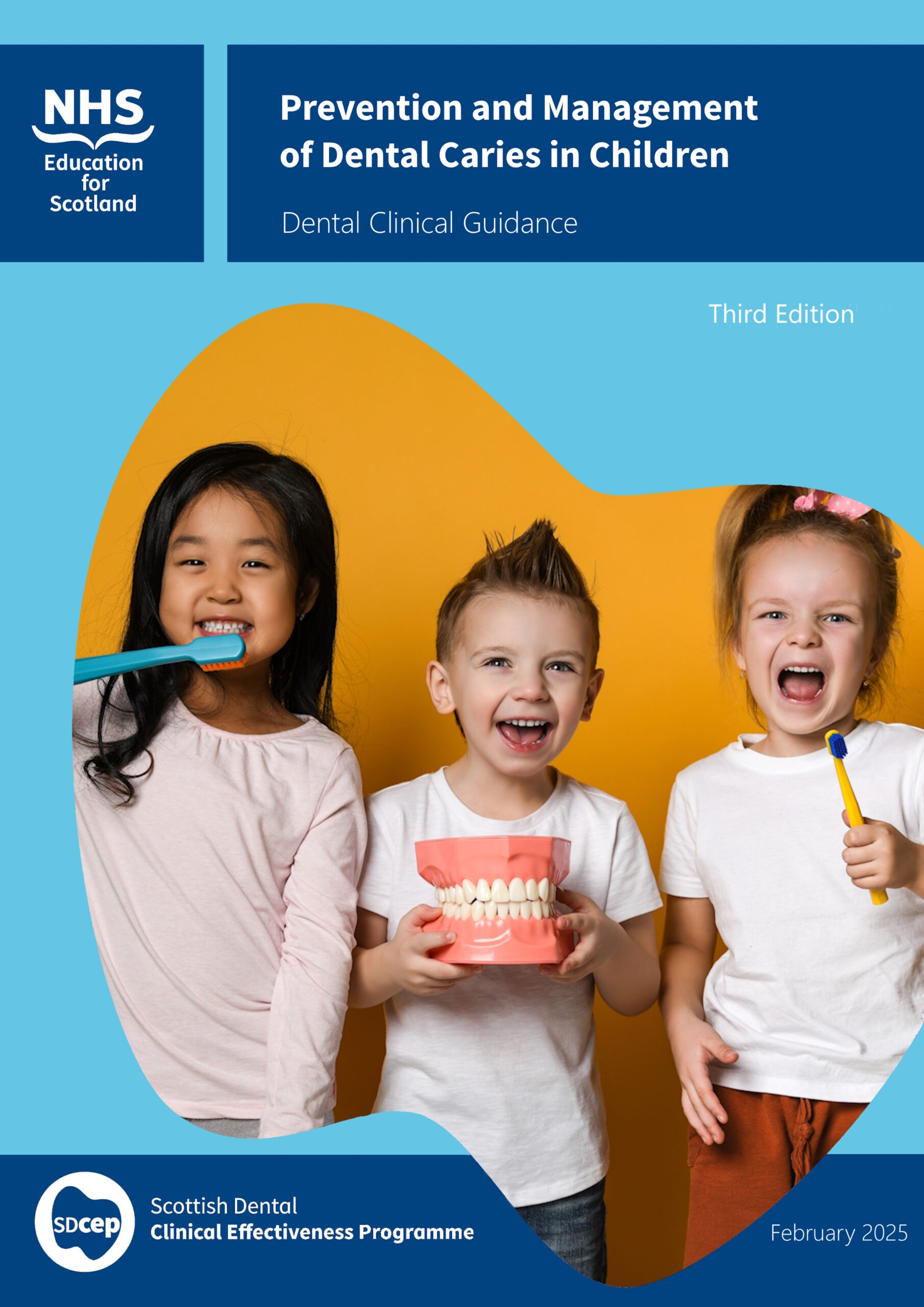The 50th issue of the Primary Dental Journal, ‘General dentistry’, is now available to view online.
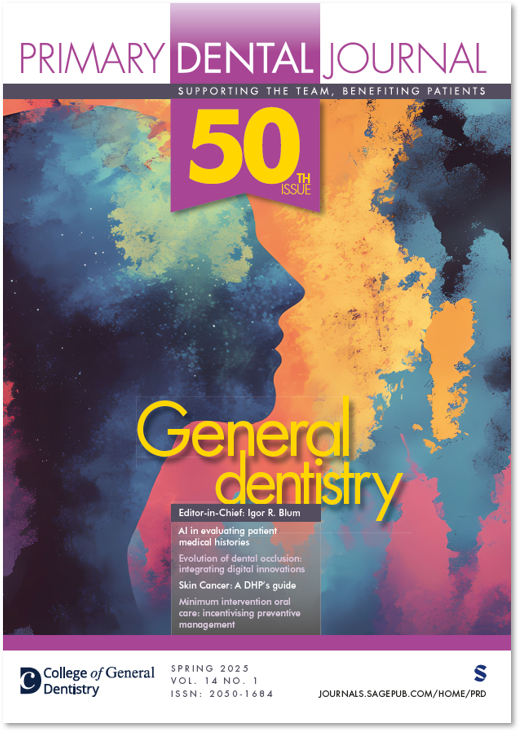
This latest PDJ marks the fiftieth issue since its initial publication in 2012, under the College’s predecessor organisation, the Faculty of General Dental Practice – FGDP (UK). In their editorial, current Editor-in-Chief, Prof Igor Blum, and Chair of the first Editorial Board, Professor Sir Nairn Wilson, celebrate this milestone with a nod to all who have contributed, by reflecting on the early days of the PDJ and where the journal is now in improving standards of patient care:
“Not only does the journal have a rich history of serving general dental practice, but it is also one of the premier journals for intellectual discourse on all aspects of primary dental care pertinent to members of the whole dental team.”
This special ‘bumper’ issue includes a wide range of General dentistry topics, such as an assessment of how artificial intelligence (AI) can assist in the evaluation of patients’ medical histories; a guide to skin cancer and what to look for in protecting your patients; how digital innovations can enhance occlusal diagnostics and treatment precision; the role of hypnosis in patient stress and pain management; and minimum intervention oral care (MIOC). A full list of papers is below.
Full online access to the majority of articles is reserved for College of General Dentistry members and Primary Dental Journal subscribers, who can also expect their printed copies to arrive around the end of May. New joiners wishing to receive a copy of this issue can let us know by emailing [email protected]
For non-members / non-subscribers, at least one paper in each issue is made available online free of charge, with all other articles available to purchase via the links below.
An annual print subscription to the PDJ is included with membership of the College, which also includes online access to over 1,500 current and past articles in the PDJ Library and a range of other benefits.
On behalf of the College, the PDJ editorial team would like to express its gratitude to all the authors and peer reviewers who have contributed to this issue.
ISSUE CONTENTS:
- Marking another milestone: the 50th issue of the Primary Dental Journal by PDJ Editor-in-Chief, Igor R. Blum and Nairn H.F. Wilson, Honorary Founding President, College of General Dentistry
- President’s update by Roshni Karia
- Preventative Care: The Dental Health Barometer, College of General Dentistry – abridgement of CGDent and Haleon report
- Research Abstracts: General dentistry by Ario Santini
- Artificial intelligence in evaluating patient medical histories: challenges and opportunities by Scott David Pelok, Luc Loyola, Ilser Turkyilmaz
- Procedural hypnosis: a powerful tool for reducing stress, anxiety and pain in clinical dental care by Jodie N. Nelson, John H. Duthie, Elvira V. Lang
- Evolution of dental occlusion: integrating digital innovations by Ziad Al-Ani, Riaz Yar
- Skin cancer: a guide for the dental healthcare practitioner by Mohammed Adam, Camran Miah, Andrew Goodall
- The role of endodontists in managing patients with molar incisor hypomineralisation (MIH) by Lavínia L. Costa, Jaderson F.S. Dantas, Patrícia B. Santos
- Fluoride varnish for the prevention of white spot lesions during orthodontic treatment: a systematic review and meta-analysis by Farhan Musaie, Nikoo Ghasemi, Khafizov Irek, Negar Sadighnia, Fatemeh Kamali, Alireza Ghajary, Farnoosh Alimohammadi, Mahdis Sadat Miri, Amirhossein Safari, Anahita Alemi, Ava Rowshani, Seyed Mahmoud Atarodi, Zahra Sadat Aghamir, Saba Vasegh, Mohammad Mahdi Khanmohammadi Khorrami, Mohadeseh Poudineh, Kimia Kelidari, Niloofar Deravi
- Assessing behaviours in antimicrobial prescribing and implants in the UK: a pilot study by Sami Stagnell, Alaa Aldaadaa
- ‘SHEEP scoring’: a practical tool for evaluating the prognosis and restorability of compromised teeth by Martin G. Kelleher, Reanna A. Craig, Nagina Safi
- Book Review of ‘Dream, Believe, Achieve: How to be a Success in Dentistry’, reviewed by Nicola Z. Gore
- Minimum intervention oral care: incentivising preventive management of high-needs/high caries-risk patients using phased courses of treatment by Avijit Banerjee, Zain Hameed, M. Ali Chohan, Kish Patel, Jin J. Vaghela, Fahad Sheikh, Nick Barker, Pritesh Shah, Divyash Patel
- Sensible solutions to perennial problems of the interdental col by Martin G. Kelleher, Reanna A. Craig, Igor R. Blum
- YouTube Shorts’ recommendations for teeth whitening: a cross-sectional analysis by Jun Yaung, Sun Ha Park, Shahed Al Khalifah
CGDent members can view full articles by logging in via the yellow button below, then clicking ‘Access the PDJ Library’:
The next issue of the journal, Oral Medicine, is due out in Summer 2025.

